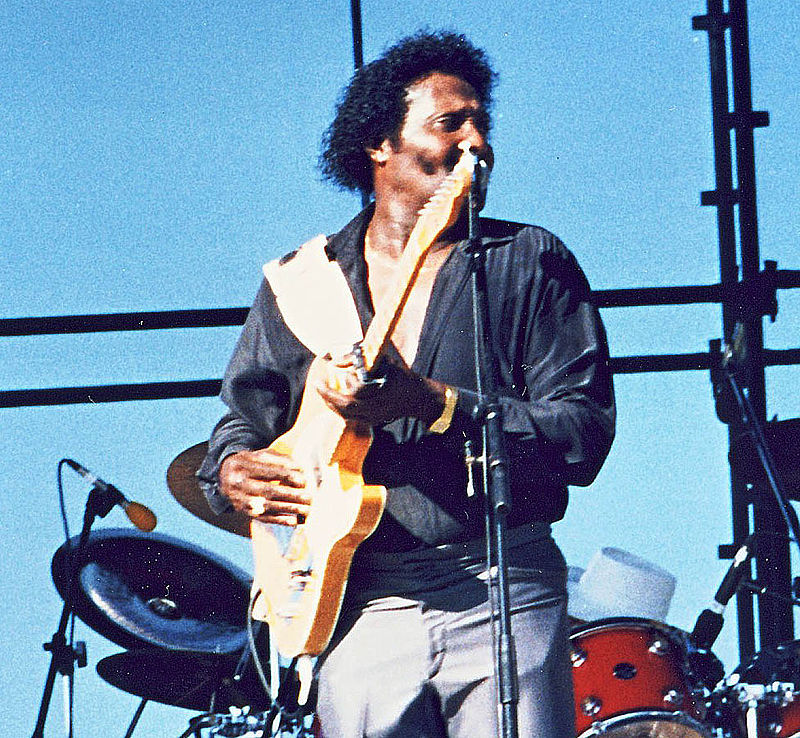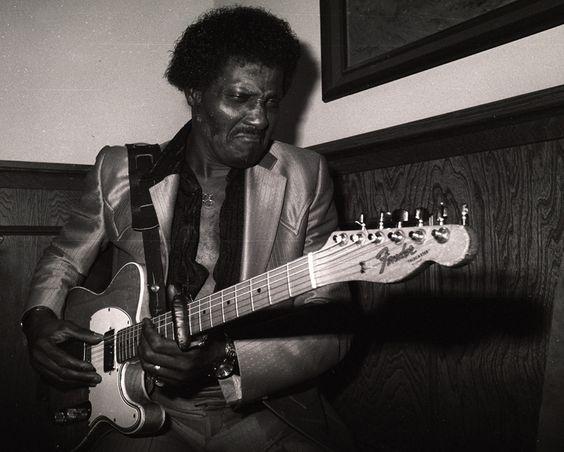Albert Collins, often referred to as “The Master of the Telecaster,” was an iconic American blues guitarist, singer, and songwriter whose innovative style left an indelible mark on the blues genre. Born on October 1, 1932, in Leona, Texas, Collins grew up in a musically inclined family and developed a passion for the guitar at an early age. Over his illustrious career, he became renowned for his searing guitar tone, unconventional tuning methods, and electrifying live performances.
Early Life and Musical Beginnings
Collins spent his formative years in Houston, Texas, where he was exposed to a diverse range of music. His early influences included T-Bone Walker, Lightnin’ Hopkins, and Clarence “Gatemouth” Brown, whose dynamic playing styles deeply inspired him. By the time he was a teenager, Collins was already experimenting with the guitar, crafting a unique sound that would later set him apart in the blues world.
In the 1950s, Collins began performing in local clubs and honing his craft. He developed a distinctive style characterized by open tunings, a capo placed high on the neck of his Fender Telecaster, and an aggressive fingerpicking technique. This combination created a piercing, sharp sound that became his signature.
Breakthrough and Recording Career
Collins’ big break came in 1962 with the release of his instrumental hit “Frosty.” The track showcased his fiery guitar work and became a regional sensation, solidifying his reputation as a leading figure in Texas blues. Throughout the 1960s, Collins recorded a series of singles for small labels, further establishing his standing in the blues community.
By the late 1970s, Collins had signed with Alligator Records, a move that propelled him onto the international stage. Albums like Ice Pickin’ (1978), Frostbite (1980), and Don’t Lose Your Cool (1983) brought him critical acclaim and a dedicated fan base. His songs often featured clever wordplay and humor, alongside his unmistakable guitar sound.
Style and Legacy
Albert Collins earned his nickname “The Master of the Telecaster” for his unparalleled command of the Fender Telecaster guitar. His innovative use of minor tunings, combined with his fingerstyle technique, created a biting, ice-like tone that became his hallmark. He was also known for his engaging live performances, often leaving the stage to play among the audience, creating an unforgettable concert experience.
Collins’ influence extended far beyond the blues. Artists such as Stevie Ray Vaughan, Robert Cray, and Jonny Lang have cited him as a major inspiration. His contributions to the genre earned him a Grammy Award in 1987 for his collaboration with Robert Cray and Johnny Copeland on the album Showdown!
Later Years and Death
In the late 1980s and early 1990s, Collins continued to tour extensively, performing at festivals and venues worldwide. He remained a vital force in the blues until he was diagnosed with cancer in 1993. Despite his illness, Collins maintained a positive outlook and continued to inspire those around him. He passed away on November 24, 1993, at the age of 61.
Conclusion
Albert Collins’ legacy as a blues innovator and guitar virtuoso endures to this day. His groundbreaking techniques, infectious energy, and dedication to his craft have earned him a permanent place in the pantheon of blues greats. Whether through his iconic recordings or the artists he inspired, “The Master of the Telecaster” continues to captivate audiences and shape the blues for generations to come.


No responses yet